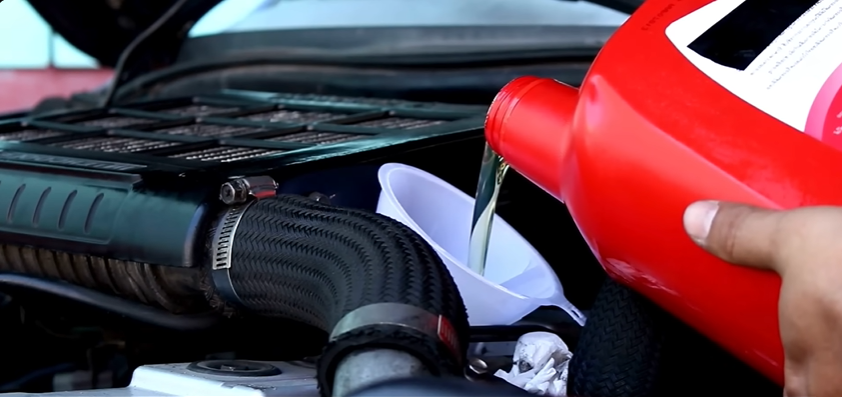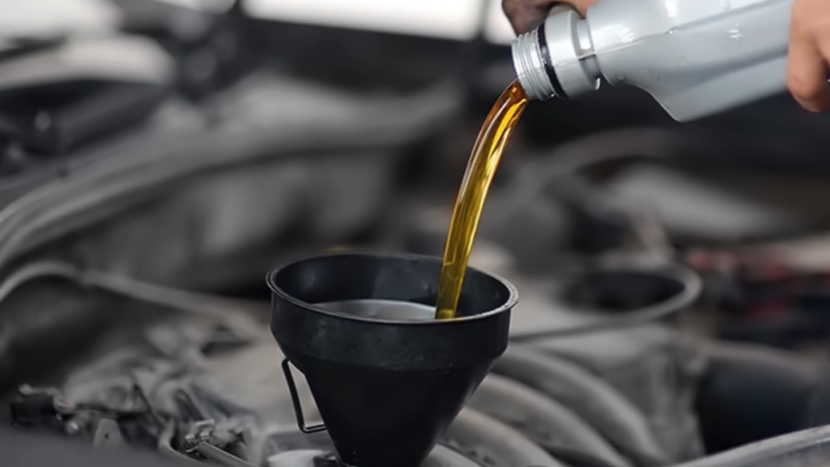Yes, the 2020 Honda CR-V still has an oil dilution problem. This is a serious issue that can lead to engine damage. Honda has issued a recall for this issue and is offering to extend the warranty on affected vehicles.
If you own a 2020 CR-V, it is important to have your vehicle inspected and repaired as soon as possible.
The 2020 Honda CR-V has been a great SUV so far. It’s stylish, efficient, and packed with a range of features. However, one problem has been reported by some owners: oil dilution.
Apparently, the CR-V’s engine can sometimes consume too much oil, causing it to become diluted. This can lead to engine damage and other problems. Honda is aware of the issue and has issued a technical service bulletin to dealerships about it.
If you own a 2020 CR-V and have experienced this issue, please take it to your dealership so they can address the problem. In the meantime, we’ll keep an eye on this issue and update this post if anything changes.
Has Honda Fixed the Oil Dilution Problem for 2020?
Honda has addressed the dip problem in the engine and manufacturing process. The new engines have undergone thorough testing and have been shown to significantly reduce oil dilution, which is expected to improve the reliability and longevity of Honda vehicles.
Does CRV Still Have an Oian L Dilution Problem?
Yes, the CRV still has a dilution problem. This is a result of the engine’s design and operating mechanism. When the engine is cold, the oil is thicker and does not flow as easily.
As a result, it can become diluted with fuel that seeps past the piston rings. This can result in loss of lubrication, which can lead to engine damage.
Does the 2002 22 HonCR-V still have an oil Dilution Problem?
As of May 2021, the oil dilution issue with the 2022 Honda CR-V remains unresolved. The oil dilution issue is caused by condensation from the exhaust gas recirculation (EGR) system mixing with the engine oil. This can result in decreased engine performance and fuel economy, as well as increased wear on engine components.
Honda is aware of the problem and is working on a fix, but has not yet released any details about when a solution will be available. In the meantime, owners of affected vehicles should check their oil level frequently and top off as needed to prevent any damage to their engines.
Which Honda CR-V has an Oil Dilution Problem?
The 2018 and 2019 Honda CR-V models have been known to have oil dilution problems. This occurs when the oil becomes diluted with fuel, potentially leading to engine damage. The problem has been linked to the car’s design, specifically the way the engine burns fuel.
Honda has issued a recall for these vehicles and is working on a fix. In the meantime, owners of these cars should be aware of the issue and regularly check their oil levels.
Is Oil Dilution Still a Problem for Honda CR-V & Civic? | Exploring the Issue & Debunking the Myths
Did Honda Fix the Oil Dilution Problem for 2021
Honda has issued a recall for over 1 million Honda and Acura vehicles in the U.S. to address an oil dilution issue that can lead to engine damage. The recall covers certain 2018-2020 Accord, 2019-2020 Insight, 2019-2021 Odyssey, and 2020 Pilot models equipped with Honda’s 2.4-litre turbocharged four-cylinder engine. The recall was issued after it was discovered that some of these engines were experiencing oil dilution, which can lead to decreased performance and fuel economy, as well as increased wear on engine parts.
In severe cases, oil dilution can cause engine failure. Honda says that the issue is caused by a software problem that allows too much oil to be drawn into the combustion chamber during cold starts. This causes the oil to become diluted with fuel, resulting in the problems mentioned above.
To resolve the issue, Honda will update the software for the engines of the affected vehicles. The software update will address excessive oil consumption during cold starts, preventing further oil dilution and protecting your engine in the future. If you own one of the affected vehicles, you will soon receive a notification from Honda regarding the update of your car’s software.
Did Honda Fix the Oil Dilution Problem for 2022
As you may be aware, Honda has experienced an issue with oil dilution in some of their vehicles. This was especially apparent in cold weather conditions, when the oil would thicken and cause problems for the engine. Honda has issued a recall for this issue and is said to have fixed the problem for the 2022 model year.
Honda released a statement saying that it revised the design of the pistons and rings in these engines to prevent oil from seeping into the combustion chamber. They have also improved the PCV system to reduce condensation and prevent oil from being drawn back into the engine. Finally, they are using a new type of oil that is less susceptible to dilution.
These changes should fix the oil dilution problem once and for all. If you own a Honda vehicle affected by this issue, be sure to have it serviced to protect your engine against potential damage.
How Did Honda Fix the Oil Dilution Problem
Honda has been in the news recently for an oil dilution problem affecting its 1.1.5-litre turbocharged engine. The issue is caused by fuel contaminating the oil, resulting in its dilution. This can lead to engine damage and reduced performance.
Honda has announced a software update that will fix the problem, but what exactly did they do? Here’s a look at how Honda addressed the oil dilution problem: The first step Honda took was to identify the root cause of the issue.
They found that it was caused by fuel getting into the oil when the car was running at low speeds with a cold engine. This occurred due to individual differences in piston ring and cylinder wall tolerances. To address this issue, Honda updated the engine control software to enable the engine to run at higher speeds when cold, thereby preventing fuel from entering the oil.
In addition to updating the software, Honda also changed some hardware components on affected vehicles. These changes included adding a check valve to prevent fuel from flowing back into the crankcase and modifying piston rings so that they fit more snugly in their cylinders. Finally, they updated their manufacturing process to ensure tighter tolerances on all future engines.
These changes should fix the oil dilution problem once and for all. If you own a Honda with one of these affected engines, be sure to get your car updated as soon as possible!
2020 HondCR-V Engine Problems
Honda is currently investigating reports of engine problems in its 2020 CR-V SUV. The affected vehicles are equipped with 1.1.5-litre turbocharged engines, and the problem appears to be related to the engine’s oil system. Some owners have reported that their vehicle’s engine suddenly lost power while driving, and then refused to restart.
Other owners have reported that their vehicle’s check engine light came on and they experienced a loss of power steering. Honda is aware of at least four incidents in which drivers had to call for a tow truck after their vehicle stopped running. Honda has not yet announced a recall for this problem, but it is investigating the issue and working with dealerships to address it as quickly as possible.
In the meantime, if you own a 2020 Honda CR-V with a 1.5-litre turbocharged engine, we recommend taking it to your nearest dealership for inspection and/or repairs.
Conclusion
2020 Honda CR-Vill HaHasil Dilution Problem? Many 2020 Honda CR-V owners continue to report oil dilution problems, despite the automaker’s purported fix. This is causing many drivers to have to add oil frequently, and in some cases, completely replace their engines.
If you own a 2020 CR-V, be sure to monitor our oil levels and consult with your dealer if you have any concerns.




Leave a Reply